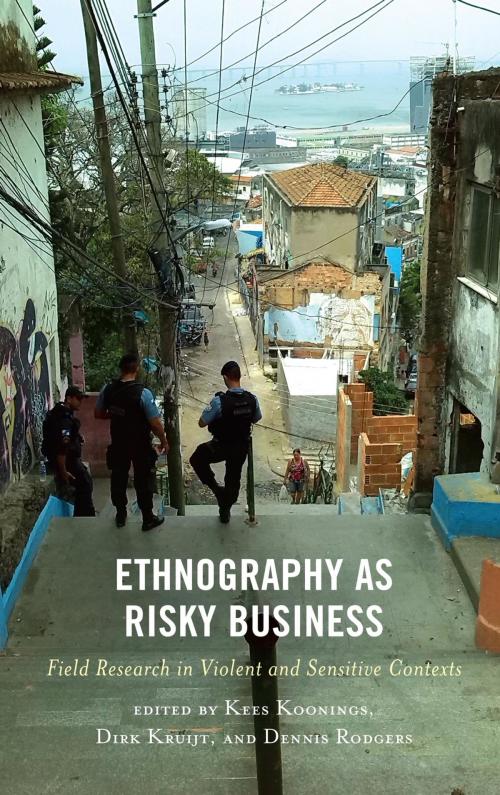Ethnography as Risky Business
Field Research in Violent and Sensitive Contexts
Nonfiction, Social & Cultural Studies, Social Science| Author: | Chris van der Borgh, Ingeborg Denissen, Tessa Diphoorn, Marie Louise Glebbeek, Elisabet Dueholm Rasch, Kees Koonings, Dirk Kruijt, Simone Remijnse, Dennis Rodgers, Eva van Roekel, Ariel Sánchez Meertens, Marc Simon Thomas, Monique Sonnevelt, Ralph Sprenkels, Floortje Toll, Nikkie Wiegink | ISBN: | 9781498598446 |
| Publisher: | Lexington Books | Publication: | April 26, 2019 |
| Imprint: | Lexington Books | Language: | English |
| Author: | Chris van der Borgh, Ingeborg Denissen, Tessa Diphoorn, Marie Louise Glebbeek, Elisabet Dueholm Rasch, Kees Koonings, Dirk Kruijt, Simone Remijnse, Dennis Rodgers, Eva van Roekel, Ariel Sánchez Meertens, Marc Simon Thomas, Monique Sonnevelt, Ralph Sprenkels, Floortje Toll, Nikkie Wiegink |
| ISBN: | 9781498598446 |
| Publisher: | Lexington Books |
| Publication: | April 26, 2019 |
| Imprint: | Lexington Books |
| Language: | English |
Ethnography as Risky Business: Field Research in Violent and Sensitive Contexts offers a hands-on, critical appraisal of how to approach ethnographic fieldwork on socio-political conflict and collective violence, focusing on the global south. The volume’s contributions are all based on extensive firsthand qualitative social science research conducted in sensitive--and often hazardous--field settings. The contributors reflect on real-life methodological problems as well as the ethical and personal challenges such as the protection of participants, research data and the ‘ethnographic self’. In particular, the authors highlight how ‘risky ethnography’ requires careful maneuvering before, during, and after fieldwork on the basis of a ‘situated’ ethics, yet also point to the rewards of such an endeavor. If these methodological, ethical and personal risks are managed adequately, the yields in terms of generating a deep understanding of, and critical engagement with, conflict and violence may be substantial.
Ethnography as Risky Business: Field Research in Violent and Sensitive Contexts offers a hands-on, critical appraisal of how to approach ethnographic fieldwork on socio-political conflict and collective violence, focusing on the global south. The volume’s contributions are all based on extensive firsthand qualitative social science research conducted in sensitive--and often hazardous--field settings. The contributors reflect on real-life methodological problems as well as the ethical and personal challenges such as the protection of participants, research data and the ‘ethnographic self’. In particular, the authors highlight how ‘risky ethnography’ requires careful maneuvering before, during, and after fieldwork on the basis of a ‘situated’ ethics, yet also point to the rewards of such an endeavor. If these methodological, ethical and personal risks are managed adequately, the yields in terms of generating a deep understanding of, and critical engagement with, conflict and violence may be substantial.















